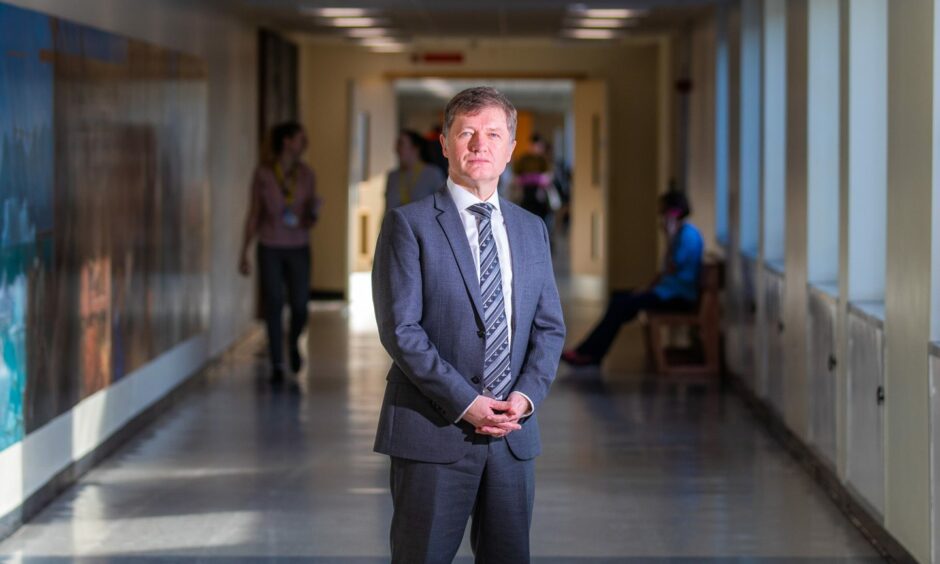
Grant Archibald was meant to be explaining to concerned politicians why the health board he’d been parachuted in to rescue was cancelling elective surgery to save cash.
To the astonishment of many on the well-attended Zoom call, the NHS Tayside chief executive instead revealed how he had instructed his mother to stop reading The Courier.
The former hospital porter – who we revealed last Sunday was standing down from his six-figure role – had been incensed by a leak to this newspaper in January of an email from a senior manager to surgical consultants outlining the controversial plans.
They were promptly abandoned in the wake of our front page story, yet the substance of Mr Archibald’s response was that such journalistic examination was some kind of affront.
“It was totally bizarre,” said one attendee at the meeting. “We’re all concerned about what’s happening at the hospital and he’s banging on about the paper.”
Eight months on, several insiders in key roles within NHS Tayside suggest this sensitivity to scrutiny was indicative of a wider managerial style.
News of Mr Archibald’s departure came just days after staff were left “angry” and “distressed” after a data breach that saw an email containing employees’ details mistakenly shared with colleagues in the corporate equalities team.
The official NHS Tayside position is that Mr Archibald is departing as he has reached the point of retirement; at the age of 62 he is four years away from receiving his UK state pension.
Scrutiny of Tayside tenure
The unexpected revelation of his departure provoked a storm of comment to The Courier and fierce scrutiny of his time in charge. It was notable that almost all staff who contacted us did so under the cloak of anonymity for fear of reprisals.
A typical example was the employee who told us there had been a “deterioration of staff and patient wellbeing across mental health services”.
They claimed the board were “tone deaf” to “toxic working relationships” amid the search for efficiencies.
Disgruntled employees with a grudge against senior management are a feature of most large organisations – it is much less common for their grievances to be officially endorsed.
But in the case of Mr Archibald’s regime there was one open-and-shut case where NHS Tayside were categorically found to have failed their employees and – more unusually – defied the rules of the SNP Scottish Government.
Last Tuesday – less than 48 hours after he hailed staff for their Covid-19 efforts as his impending departure was confirmed – we revealed NHS Tayside failed to comply with work-from-home guidance during the Coronavirus pandemic.
In a subsequent story, a retired manager then went public on how her non-clinical team were ordered back to their desks at the height of Covid under threat of the sack.
In the same week lockdown was announced, she claims to have received a call asking why her team had not been in the office.
‘Really stressful’
Her attempts to address the issue were met with “a brick wall”.
She said: “The culture meant everyone [else] just went along with it.”
It wasn’t long before she walked away for good.
She added: “It made the decision [to retire] easier. It was something I was considering and it was made easier because I felt we weren’t valued.
“Being treated like that was really stressful and it was tough on people’s wellbeing.
“I was worried about my team. It was not necessary to go in.
“I was genuinely concerned for members of the team. All of these things were acknowledged – nobody denied it – but nevertheless they said it was policy to come in.”
IT staff in particular are believed to have been astonished by the organisation’s approach amid claims it was “physically impossible to maintain a two-metre space safely between colleagues” in the workplace.
One employee said: “I was lucky in that I managed to work from home at the very start of the pandemic despite the instruction from HR.
“But I was on a Teams call with [a senior executive] who spotted I was working at home.
“They then wrote to my line manager instructing me to return to the office.”
The Courier has had sight of emails sent to staff by Dr Drew Walker (director of public health who was earning £185k a year, now retired), George Doherty (director of workforce) and Laic Khalique (director of digital technology) regarding NHS Tayside’s return-to-work demands.
But multiple sources told us: “Make no mistake, this order came from the very top.”
NHS Tayside deny this decision was made by the chief executive and say it was agreed in partnership with trades unions.
A&E success
Mr Archibald took up the role of NHS Tayside chief executive in January 2019, joining from NHS Greater Glasgow and Clyde where he had been chief operating officer of acute services.
After impressing board members with his finance credentials, he was brought in to steady the ship at a cash-strapped organisation that less than a year earlier had its debts written off by the Scottish Government and used charity money to pay for IT equipment.
He leaves an organisation with a deficit of £54 million and a need for efficiencies of £33 million.
A key success of his tenure was the launch of the Transformation Tayside programme aimed at overhauling the way health services in the region are delivered.
This project helped make Ninewells’ emergency department the top performer in the UK in 2020 and it is widely regarded as the best in Scotland with the majority of patients seen within four hours.
And while his time in charge has been marked by a struggle to get to grip with a series of crises even his biggest critics acknowledge he inherited a mess.
Controversies – including accusations of a cover-up over disgraced surgeon Sam Eljamel, a “national scandal” in adult psychiatric care and a crisis in breast cancer care – have brought the media spotlight.
He is said to have enjoyed a good working relationship with SNP MSPs Shona Robison (former health secretary, now deputy first minister) and Joe FitzPatrick (former public health minister, now minister for local government empowerment and planning).
But an insider said: “There was a feeling these meetings became more about shutting down criticism than addressing issues.”
Employee and political reaction
Opposition parties, whilst generally of the view Mr Archibald was an improvement on what had come before, were frustrated by a sense his alliance with SNP politicians left little room for challenge or opportunity for structural or strategic change.
One source said: “They had a mutual interest in saying ‘nothing to see here’ as scandal mounted on scandal.
“We all knew it was s**t but there was basically nothing we could do.”
NHS Tayside employees who contacted The Courier in the wake of Mr Archibald’s retirement were even more forthright.
One said: “He doesn’t seem to have made much difference and has rubbed a lot of people up the wrong way.”
Another simply said: “Good riddance.”
It’s important to note, however, this view was not universal.
Jules Rose, a victim of rogue doctor Eljamel, says she found the Dundee-born boss “extremely approachable” in her dealings with him.
But she added: “I think it will be more of the same, because this is not just Grant Archibald we are holding to account.”
Other sources took a more neutral position, with one describing Mr Archibald as “hard to read” and “all about business”.
Four decades in the NHS
What we know for sure is he wrote to the chair of NHS Tayside on July 16 signalling his intention to retire. He also notified the Scottish Government.
His last day will be on Hogmanay after four decades in the health service.
The Courier asked the health board if it would like to comment on how staff are being engaged and supported amid the claims of a “toxic” climate.
It said: “Over the last five years NHS Tayside moved from an organisation which had been unable to balance its books for the previous decade to a position where the Board has consistently delivered, and indeed exceeded, its annual financial plan.
“This has only been possible by adopting a collaborative approach to identifying and delivering efficiency programmes which are owned and delivered collectively by our clinical and managerial teams, supported by staff side colleagues.
“This is the clinically-led, managerially-enabled team approach which worked successfully throughout Covid, and it is this same tried-and-tested team approach which is being applied to our efficiency programme in 2023/24.”
They now face a search for a new chief executive at a time of unprecedented strain on the NHS.
Any potential candidate will have to re-establish the trust of both staff and public and take a fresh approach to the scandals that dominated Mr Archibald’s time in charge.
It’s unlikely the newspaper reading habits of their parents will play a role in the selection process.
Additional reporting by Laura Devlin and Derek Healey.
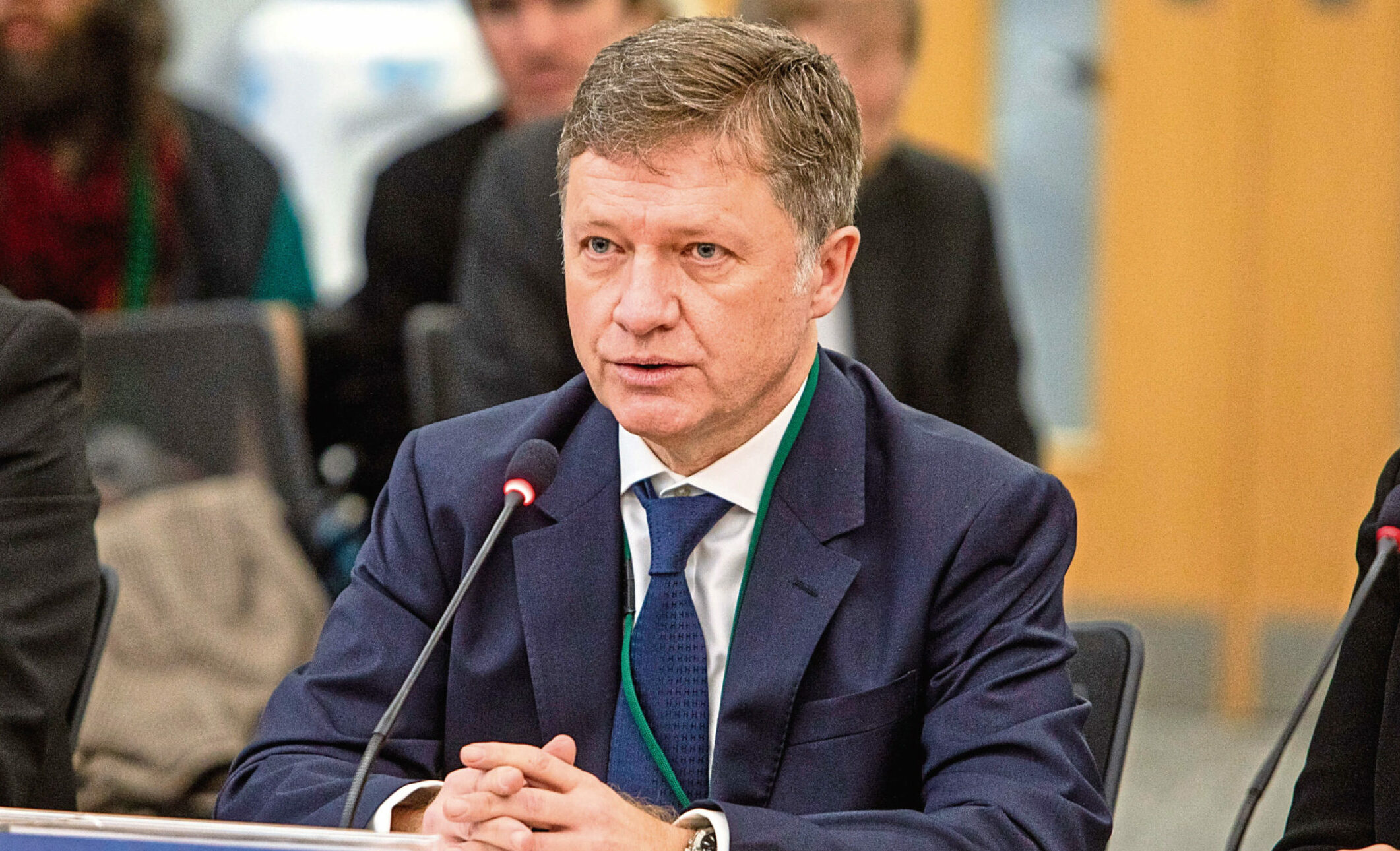

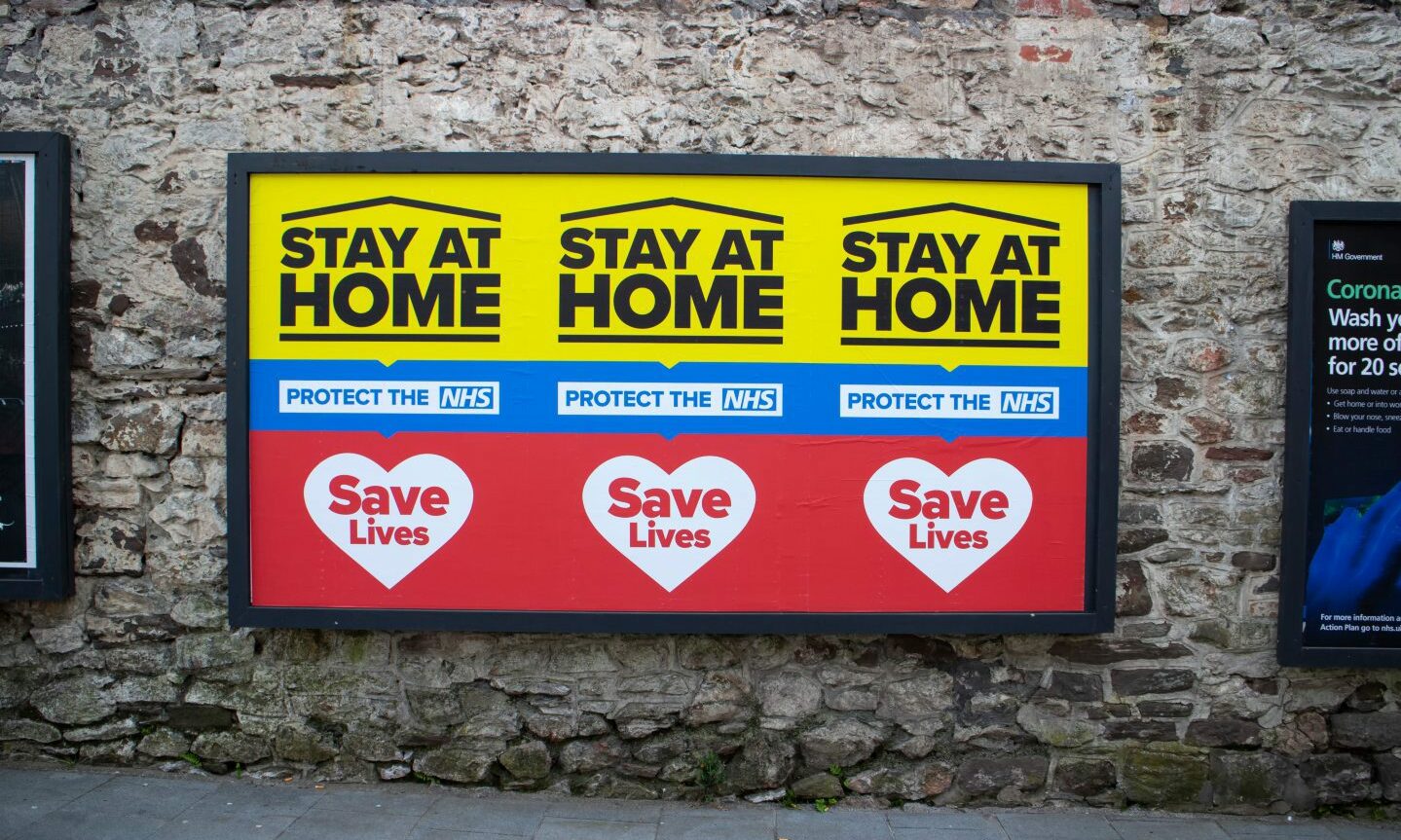
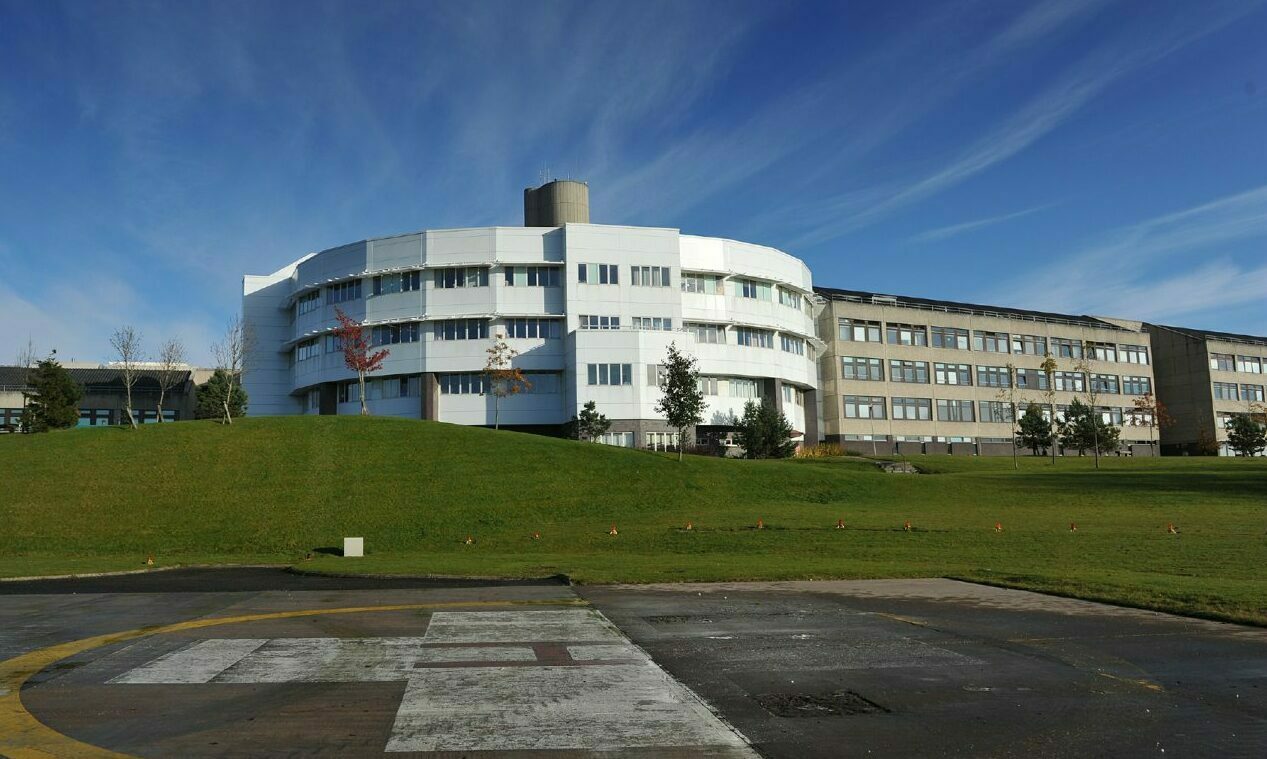
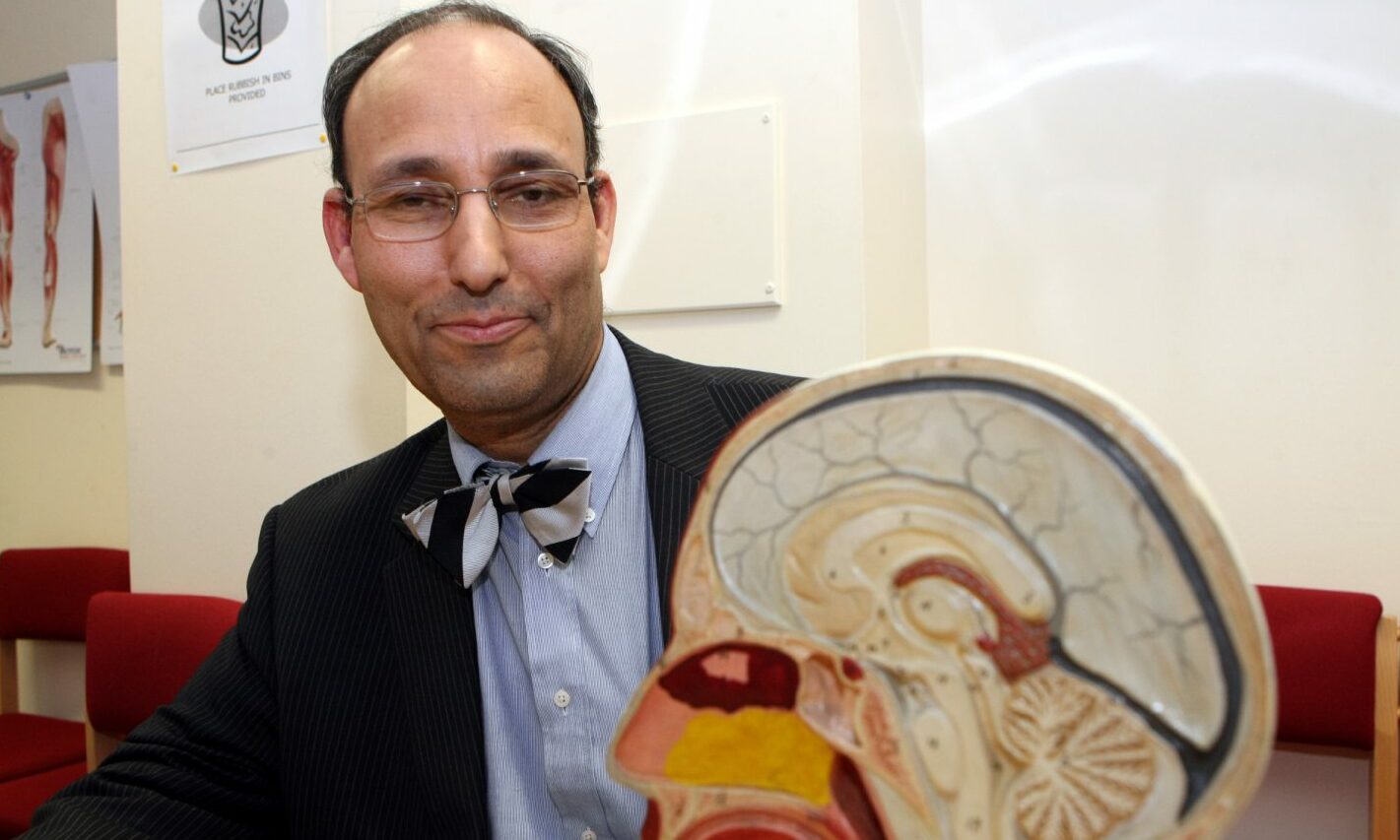
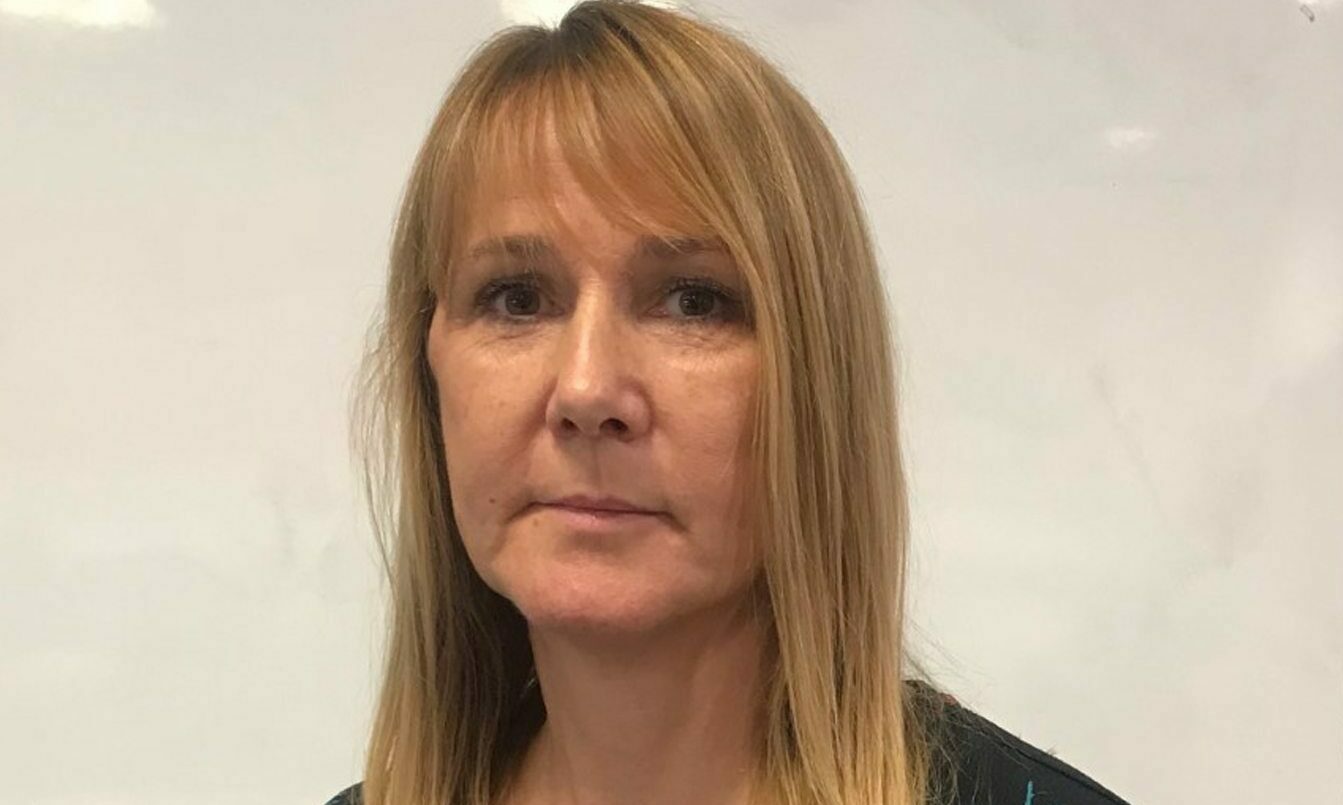

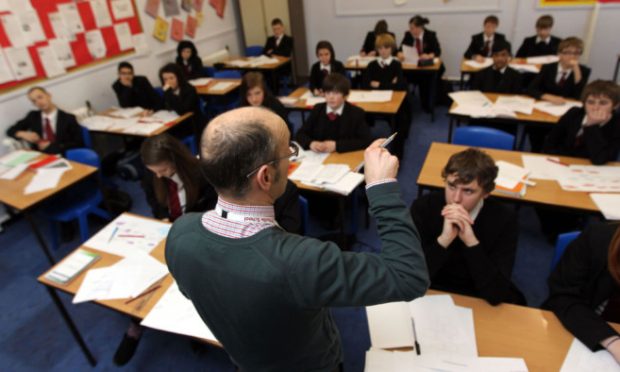




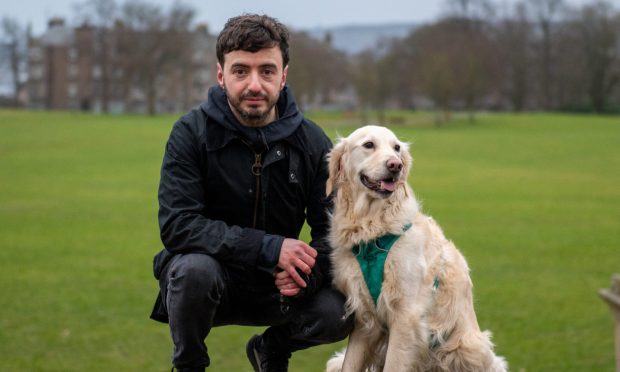
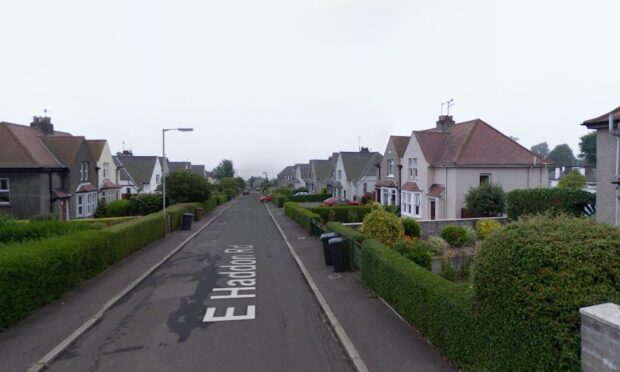


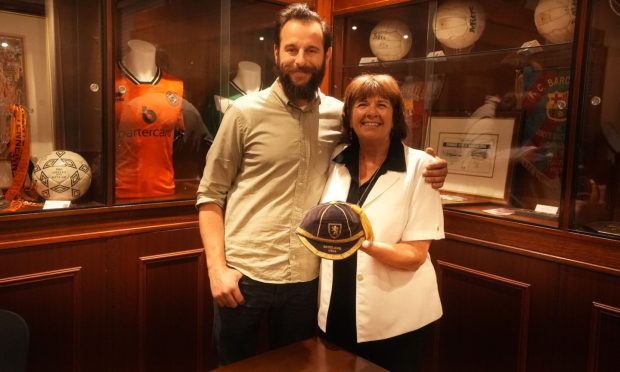
Conversation